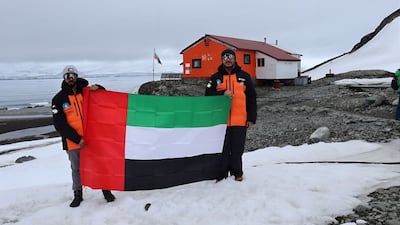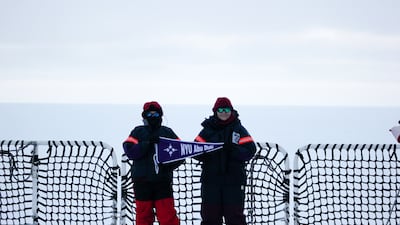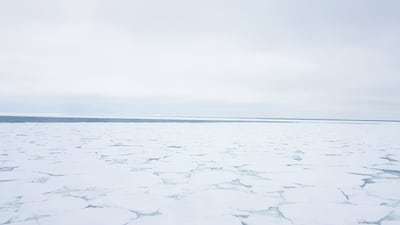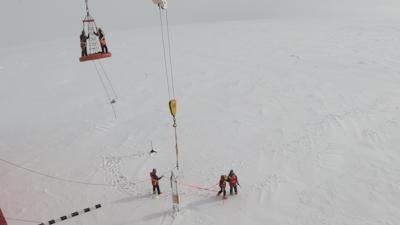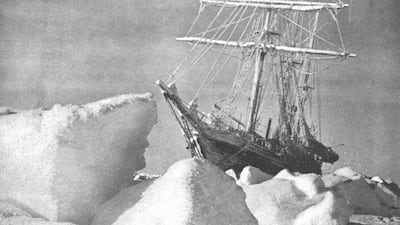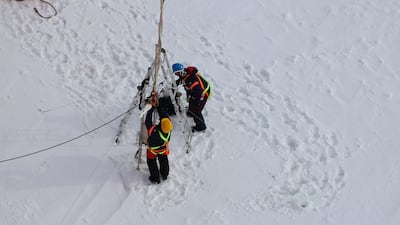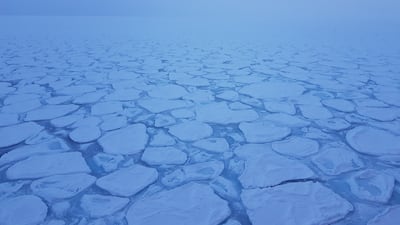Two Emirati experts have arrived in Antarctica to take part in the National Centre of Meteorology’s first scientific expedition to the South Pole.
Joining up with the Bulgarian Institute of Polar Research, Ahmed Al Kaabi and Badr Al Ameri have undergone intensive training to endure the icy continent’s harsh conditions.
Two meteorological and seismic monitoring stations will be installed, which will contribute to gathering data on weather patterns and seismic activity in the region. This information will support the NCM in developing more accurate numerical forecasting models, said officials.
The mission also aims to conduct critical research on climate change, atmospheric composition and polar meteorology – with the goal of contributing to global understanding of the South Pole's role in regulating the Earth's climate, state news agency Wam reported.
“This scientific expedition to the South Pole represents a significant step in enhancing the UAE's stature as a global hub for scientific research in meteorology and climate,” Dr Abdulla Al Mandous, director general of the NCM and president of the World Meteorological Organisation, said.
“This collaboration with the Bulgarian Institute for Polar Research demonstrates our commitment to actively engage with the international community to enhance knowledge and develop scientific solutions for current climate challenges.”
More precise forecasts
Dr Al Mandous also noted that the data collected will bolster efforts to provide precise forecasts and improve the national and global response to changing climate conditions. “I look forward to further advancements in our research projects and enhancing international scientific co-operation that supports our efforts to address climate change and achieve sustainable development,” he added.
So far, the team has collected atmospheric data to study the impact of polar weather patterns on the global climate, as well as monitoring melting ice and its effects on rising sea levels.
It follows research released by scientists at Khalifa University in Abu Dhabi in 2023 that shed greater light on the factors causing Antarctic ice to melt and their impact on coastal countries like the UAE.
“In our studies, we identified the atmospheric processes that are triggering and contributing to the ice melt,” Khalifa University's Diana Francis told The National at the time.
She said that these processes have been increasing in frequency and intensity since 2000, with the causes of both attributed to warmer global temperatures. “Antarctica is far from our region but ultimately the ice melt there would impact the sea-level rise globally and especially coastal countries like the UAE,” Dr Francis added.
